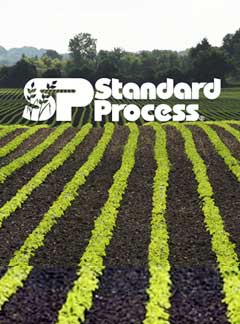Standard Process NYC from Acupuncturist Marc Bystock L.Ac.
"Standard Process is one of the few supplement manufacturers I know of that manage and maintain their own one-thousand-acre organic farm. On their farm, they grow much of the ingredients that go into their end products."
-Marc Bystock L.Ac.
Contact Marc Bystock, Leading Holistic Acupuncturist in NYC for a Free Consultation.
CONTACT MARC
VERIFY YOUR HEALTH INSURANCE
Standard Process Practitioner and NYC Acupuncturist in Midtown Manhattan NY 10016
The reason I use Standard Process and MediHerb products in my practice is simple. The supplements that they produce are clinically effective in helping my patients to resolve their issues.
There are many supplement producers in the world. Occasionally some of them may have a unique product based on new research. Standard Process distinguishes itself because it is a “whole food supplement” manufacturer.
It is estimated that 75-78% of all the adults in the United States take supplements. What most people don’t know is that most vitamin formulas are synthetically produced. That means that they are artificially produced in a laboratory and manufactured by a pharmaceutical company.
The Standard Process whole food concept is to concentrate whole botanicals, glandulars, and minerals into tablets, capsules, and powders using raw materials from nature. Wholefood supplements are highly bioavailable.
Bioavailability is critical because our bodies only use what we can absorb through our digestive tract. The other important factor to understand is that whenever you use a whole food concentrate, you uptake and use all the synergistic compounds found in nature, both known and unknown.
In contrast, Synthetic vitamins use chemical isolates, not synergistic compounds. Isolated synthetic vitamins have lower bioavailability and are without the co factors as found in nature. This could have a negative response in function when compared to whole food supplements.
Maybe you’ve been told to take vitamin C for a cold or the flu. Another name for vitamin C is ascorbic acid, an isolated synthetic usually made from corn syrup. In nature, vitamin C is always made up of a family of compounds. It consists of ascorbic acid in its outer shell, bioflavonoids (i.e., rutin, hesperidin, quercetin), J factors, P factors, Tyrosinase, and K factors. These compounds all work synergistically to provide a superior clinical outcome as opposed to using them alone.
Watch this short video on the health benefits of Standard Process Zinc Chelate
Standard Process Farm
Standard Process is one of the few supplement manufacturers I know of that manage and maintain their own one-thousand-acre organic farm. On their farm, they grow much of the ingredients that go into their end products.
Whenever possible, I like to visit my suppliers. I’ve been to the Standard Process farm on multiple occasions. Located in northern Wisconsin on a glaciated landscape, it’s a fantastic place to learn from experts about organic farming and quality control manufacturing. They use organic composting to produce the darkest and most nutrient dense soil I’ve ever seen.
To maintain a farm staff with several Ph.D.’s in agricultural science with a lot of equipment is a large additional overhead. They do this for one reason, quality. The Standard Process company began back in 1929. They’ve been obsessed with turning out the highest quality products since that time.
Standard Process maintains a comprehensive research and development staff at the research campus in Kannapolis, North Carolina. The staff is facilitated by several Ph.D.’s and works in coordination with the nearby University of North Carolina, Harvard University, and many other leading research institutes worldwide.
MediHerb Practitioner
Standard Process is the sole U.S. distributor of MediHerb botanicals. I’ve had the pleasure of meeting Professor Kerry Bone, N.D. on several occasions. He is the founder of the MediHerb company located in Brisbane, Australia.
MediHerb is a pharmaceutically licensed company that is committed to creating some of the finest botanicals on the planet. MediHerb boasts several Ph. D. botanists on their research and development staff. They are selective in their choice of botanical source suppliers from around the globe.
They precisely identify each herb coming into their facility. Most product end users may be surprised to learn that a lot of fraud exists in the industry. It remains up to the manufacturer to use high-performance liquid chromatography (HPLC) to identify the genus and species of the incoming raw plant material as well as the activity level for quality.
Contact NYC Acupuncturist Marc Bystock L.Ac. for Standard Process and MediHerb Supplements
For both Standard Process and MediHerb, quality control is an essential step in the manufacturing process. All materials are checked before and after manufacturing for contaminants, including microorganisms and heavy metals.
Part of your holistic acupuncture treatments may include supplementation from Standard Process and MediHerb. I use these products on myself, my family, and my patients with great success. I know that I can trust to help you get well too!
Please contact me
for a free consultation.






